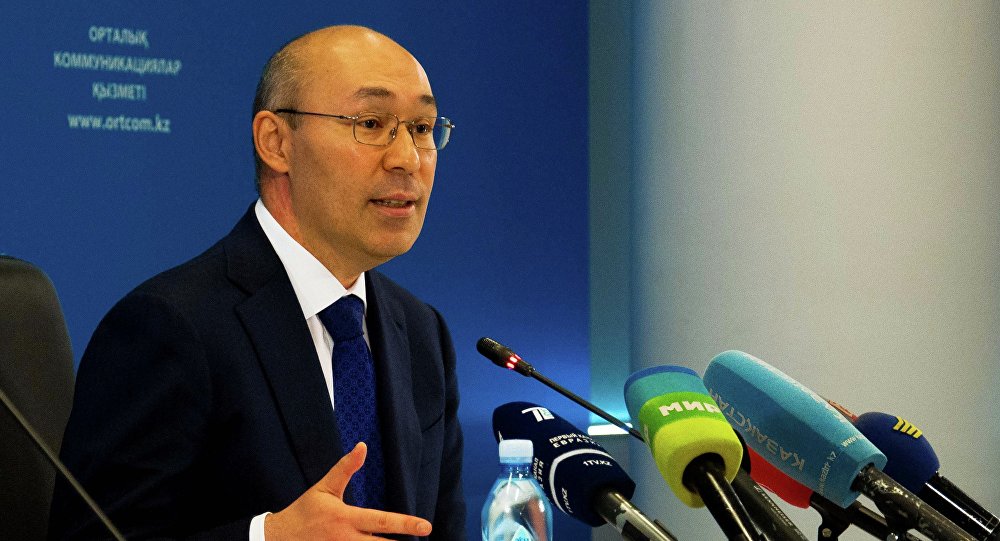Kazakhstan expands fluctuation corridor of tenge/USD exchange rate

By Aynur Karimova
Kazakhstan's National Bank has expanded the fluctuation corridor for the exchange rate of its national currency, the tenge, against the U.S. dollar, Kazakh National Bank head Kairat Kelimbetov said on July 15.
Earlier, the currency corridor was set at 170-188 tenge per dollar.
"Kazakhstan's monetary policy will not change in the second half of the year. In general, we believe that the exchange rate policy is optimal. However, the exchange rate against the dollar has almost reached the upper limit, today the exchange rate of tenge fluctuates over 180 tenges, and in order to further implement a more flexible and smooth exchange rate, the National Bank has decided to expand the fluctuation corridor of the exchange rate to 185 + 13 / -15," he noted.
The introduction of the new exchange rate band is scheduled for late afternoon on July 15.
"We believe that the previous corridor, which was first established in February last year, and then corrected in September with an aim to strengthen tenge, served long enough. We believe that the new corridor will serve quite a long time as well," Kelimbetov said.
Kelimbetov went on to add that the National Bank does not expect a sharp weakening of tenge in connection with the new policy.
"The Tenge will fluctuate at about the same range in the next six months," he said.
Touching upon the exchange rate of the Russian ruble, Kelimbetov said this situation will depend on fluctuations in oil prices.
"This is a difficult issue for today. In general, there is a consensus of analysts that crude oil of Brent brand will fluctuate in the next six months or a year in the corridor of $50-$70. There are different opinions claiming that it may fall and rise. If to talk about the next six months, it will likely stand at $50-60 due to many factors: the instability in the euro zone, the situation in Greece and the problems of the stock market in China. Therefore, if oil prices fluctuate in the corridor of $50-$60, the Russian ruble will likely fluctuate in the same range," he added.
According to data released by the National Bank of Kazakhstan, ruble and dollar sales halved in May, and the euro by 20 percent. The reduction in the sale of currency has been observed in all regions of Kazakhstan. In May, the Kazakh population bought foreign exchange by only 240.2 billion in tenge equivalent.
Rumors of devaluation have increased in February as the tenge devalued twice in the last six years, both times in February. The Central Asian economy experienced a 22 percent devaluation of the tenge in February 2009 and then a one-step 19 percent devaluation of its currency last year, also in February.
Fluctuations of oil prices across world markets have impacted energy-rich Kazakhstan, whose economy mostly depends on oil exports, forcing the country to slash government spending.
The government is also grappling with economic difficulties associated with a burgeoning recession in Russia, Kazakhstan’s biggest trading partner.
The government is making all efforts to prevent sharp fluctuations in the national currency. The state has worked out a series of measures to prevent a sharp rise in inflation, one of which is its new monetary policy.
--
Aynur Karimova is AzerNews’ staff journalist, follow her on Twitter: @Aynur_Karimova
Follow us on Twitter @AzerNewsAz
Here we are to serve you with news right now. It does not cost much, but worth your attention.
Choose to support open, independent, quality journalism and subscribe on a monthly basis.
By subscribing to our online newspaper, you can have full digital access to all news, analysis, and much more.
You can also follow AzerNEWS on Twitter @AzerNewsAz or Facebook @AzerNewsNewspaper
Thank you!
